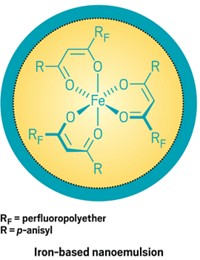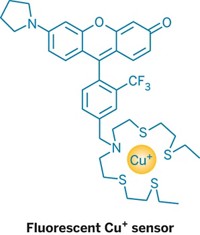Advertisement
Grab your lab coat. Let's get started
Welcome!
Welcome!
Create an account below to get 6 C&EN articles per month, receive newsletters and more - all free.
It seems this is your first time logging in online. Please enter the following information to continue.
As an ACS member you automatically get access to this site. All we need is few more details to create your reading experience.
Not you? Sign in with a different account.
Not you? Sign in with a different account.
ERROR 1
ERROR 1
ERROR 2
ERROR 2
ERROR 2
ERROR 2
ERROR 2
Password and Confirm password must match.
If you have an ACS member number, please enter it here so we can link this account to your membership. (optional)
ERROR 2
ACS values your privacy. By submitting your information, you are gaining access to C&EN and subscribing to our weekly newsletter. We use the information you provide to make your reading experience better, and we will never sell your data to third party members.
Synthesis
Sweet Nanoparticle Imaging
Sugar-coated nanoparticles aid MRI diagnosis of disease-associated lesions in the brain
by Celia Henry Arnaud
January 5, 2009
| A version of this story appeared in
Volume 87, Issue 1

University of Oxford researchers have devised sugar-coated nanoparticles that could improve the diagnosis of disease-associated lesions in the brain (Proc. Natl. Acad. Sci. USA, DOI: 10.1073/pnas.0806787106). Benjamin G. Davis, Nicola R. Sibson, Daniel C. Anthony, and coworkers began by attaching glycan ligands to amine-functionalized, dextran-coated iron oxide nanoparticles. The best ligand they tried is sialyl LewisX, a tetrasaccharide that targets selectins, which are carbohydrate-binding proteins involved in inflammation. The team modified the ligand with an S-cyanomethyl linker that serves as a protecting group until the ligand is added to the nanoparticle. The team used the resulting glyconanoparticles as contrast agents in magnetic resonance imaging studies of rats afflicted with conditions similar to multiple sclerosis or stroke. The glyconanoparticles revealed lesions in these disease models at an earlier stage than did other MRI contrast agents, a result that the researchers suggest could lead to methods for earlier diagnoses.





Join the conversation
Contact the reporter
Submit a Letter to the Editor for publication
Engage with us on Twitter